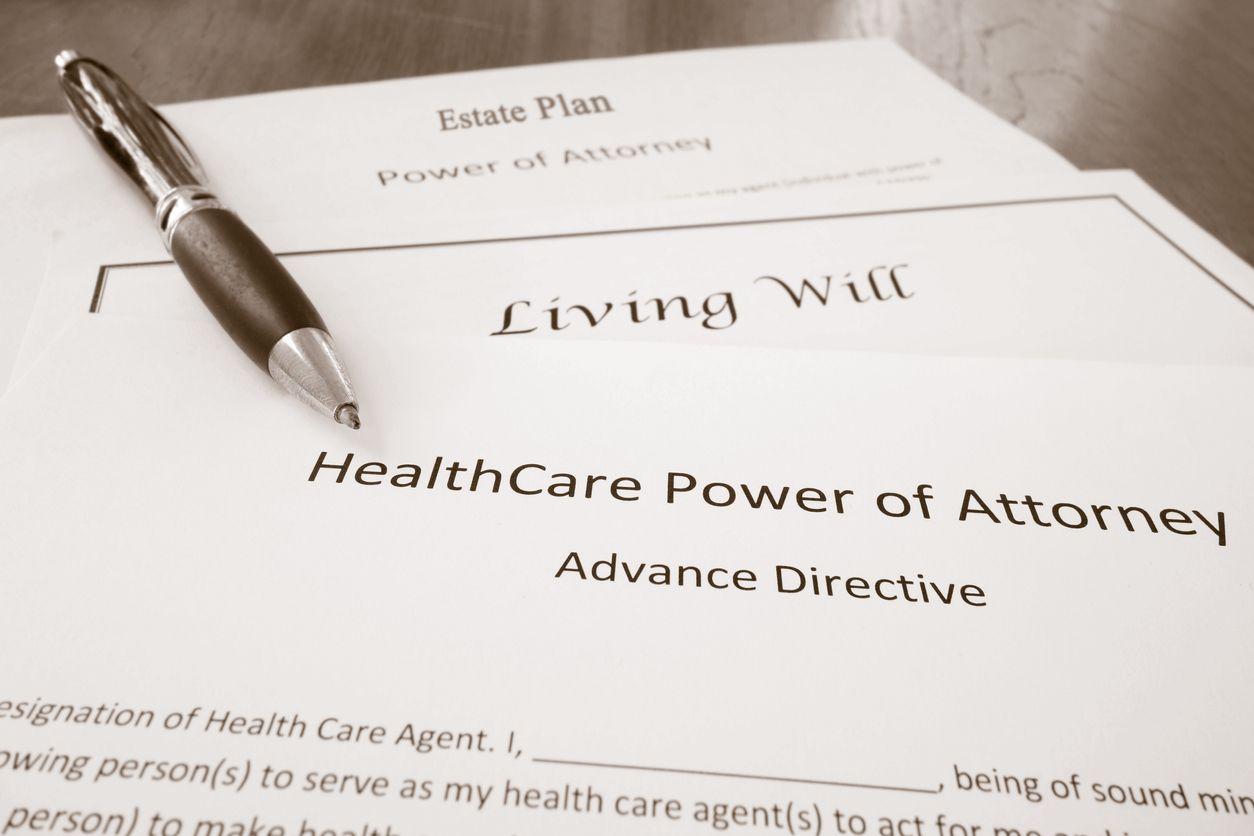What Is An Advance Directive? About Your Medical And Healthcare Decisions

An Advance Directive allows you to specify what types of medical, life-sustaining treatments you would want if you are not able to do so yourself. An Advance Directive can also name a specific person to make your health care decisions for you in the event you cannot.
How Do Advance Directives Work?
Advance Directives are legally recognized documents that specify the medical and health care decisions you want made for you in the event you become incapacitated and cannot make your own decisions at the time.
Medical Decisions and Your Surrogate Decision Maker
With an Advance Directives, you can specify treatments you would or would not want under certain circumstances. You can also you name a surrogate to make such decisions for you. You want to make sure this is a person you trust to carry out your wishes in the event you are unable to make them for yourself.
Types Of Advance Directives
Living Will
A Living Will is a type of Advance Directive that specifies which types of medical or life-sustaining treatments you do and do not want to use if you are not able to voice them for yourself. These can include decisions such as whether or not you would want a breathing tube if you are unable to breathe on your own or a feeding tube if you are unable to eat. You can also specify whether you would want life-extending treatment if you were to lose consciousness with little chance of regaining it.
A Living Will is different than a Will because it takes effect when you become incapacitated and can't make medical decisions for yourself. A Will goes into effect upon death and is intended to transfer your estate according to your wishes.
Power of Attorney
Another type of Advance Directive is a Power of Attorney (POA), or Financial POA. This is a document that authorizes a person of your choosing to handle certain financial matters decisions in your place. A Durable Power of Attorney maintains the named individuals authority to manage your finances on your behalf if you become incapacitated, which includes paying your bills. With a Power of Attorney that is not Durable, the legal authority to act in your name ends when you become incapacitated or otherwise unable to make your own decisions.
Health Care Proxy
A Health Care Proxy, or Medical Power of Attorney is a type of Advance Directive that you can appoint a surrogate, or a decision maker, to make decisions if you can't make them for yourself.
Do Advance Directives allow financial and medical decisions to be made by the same person?
One thing to consider when choosing your Durable Power of Attorney and Your Health Care Proxy. You need to make sure that they would be in agreement in the event that you cannot make health care or financial decisions for yourself. Your Health Care Proxy may want to choose potentially costly health care options in the interest of your needs and wishes. The Durable POA however, can choose not to release the funds of yours that they are overseeing for such treatment options.
It may be advisable to choose one individual that you trust to serve as both Health Care Proxy and the Durable POA. If you do so, the person you choose can act quickly and decisively in an emergency situation where you can't make your own decisions. Depending on what state you live in, it may be possible to include the authorization to make medical decisions within the Durable Power of Attorney, in other states doing so may require two separate Advance Directive documents
This type of preparation can be a very detailed and personalized process. There also may be circumstances you haven't considered when it comes to major life decisions involving your health and medical care. Consider consulting a law firm experienced with Advanced Directives and all aspects of estate planning, who can help you make sure that you and your family's well being is protected as much as possible.
What Happens If I Don't Have An Advance Directive?
If you become incapacitated and you do not have any form of Advance Directive authorizing a Durable Power of Attorney or a Health Care Proxy to make medical or financial decisions on your behalf, or a Living Will specifying the type of care you want the Courts are most likely to appoint representatives according to state law. Without any such Advance Directive documents, the people appointed may not necessarily make the medical or financial decisions you would have wanted made on your behalf.
Keep in mind that these types of decisions, whether appointed by you through an Advance Directive or a Court appointed representative, can make decisions that can have long term consequences.
The degree of decision making power will vary by state. Without the presence of any valid Advance Directives, any such financial or health care decisions known by your family members or close associates to go against your wishes, or are seen as against your interests, would require your family would to petition the court to intervene. This attempt to intervene would involve court fees and may not necessarily be successful. Such decisions could include but would not be limited to, selling your property, paying for assisted living, placing you in a nursing home, choice of medical provider, whether to purchase or terminate an insurance policy, whether or not to continue expensive medical treatments, issue Do Not Resuscitate (DNR) orders, or plan for end of life hospice care.
You most likely would not want your family, loved ones, or close associates, to be in such a situation if you are unable to make medical or financial decisions for yourself. By preparing an Advance Directive or multiple Advance Directives, you can save yourself and your family from leaving decisions such as when to start or stop medical treatments, choosing a living environment, or when to choose hospice care, to a stranger authorized by the state.
Do you or a loved one plan on drawing up Advance Directives?
Jelks Law can advise you with the preparation of an Advance Directive or answer any questions you may have on Advance Directives. Or if you have questions on Advance Directives, Living Wills, a Power of Attorney designation, or any other matter involving your estate, please feel free to call our office.
